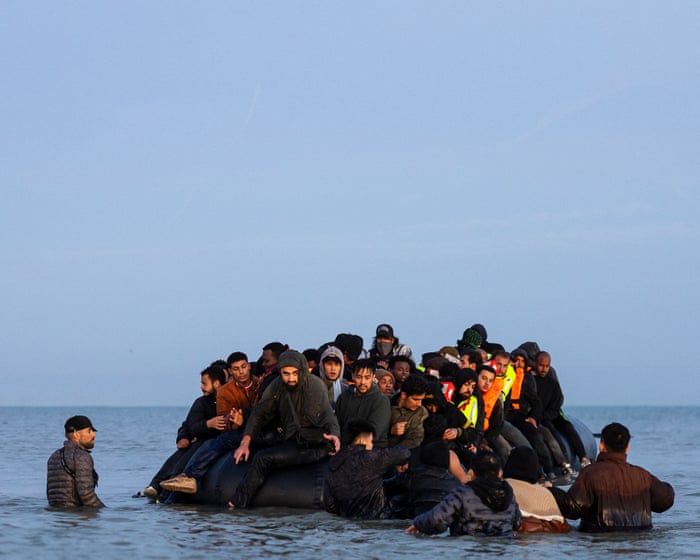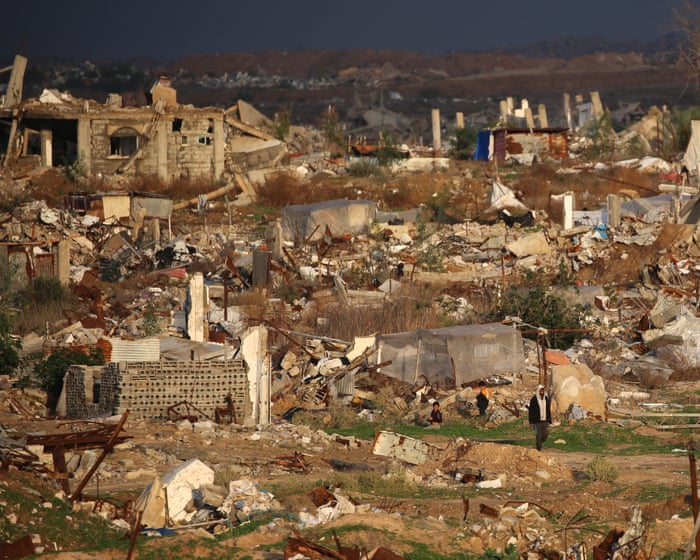Fifteen human rights organizations from France and the UK are demanding the suspension of the contentious “one in, one out” treaty through a legal case filed in France.
The agreement, signed by both countries in July, stipulates that for every asylum seeker who crosses the English Channel in a small boat and reaches the UK, one will be sent back to France, while another chosen in France will be allowed to enter the UK.
Groups backing the legal challenge include Utopia 56, Auberge des Migrants, Secours Catholique, and Doctors of the World.
Lionel Crusoe, the French lawyer leading the case, stated: “We have appealed to the Council of State against the decree that enacted the Franco-British agreement. We are contesting the readmission measures in this deal.”
“These measures fail to offer adequate safeguards for the unique circumstances of displaced people. Moreover, the ‘one-to-one’ approach is deeply problematic and does not fully uphold the principle of human dignity.”
He added that the lawsuit argues the treaty violates the French constitution, as it should have been presented to parliament for approval before taking effect. “However, parliament was never given the chance to review it.”
This legal action coincides with a joint statement drafted by 25 asylum seekers returned to France under the treaty, shared with the Guardian. They express the need to “urgently highlight the extremely difficult and unsafe conditions we are currently facing.”
So far, 26 asylum seekers have been sent back to France, having escaped conflict areas such as Eritrea and Iran. One individual left France shortly after arrival, and his current location is unknown.
Many are teenagers or in their early twenties. They report being fingerprinted in France, which could lead to their forced removal to other EU countries under the Dublin Convention. This regulation permits one EU nation to return asylum seekers to another where they were previously registered and fingerprinted. After Brexit, the UK lost direct access to this system, but the new treaty provides indirect access.
Documents provided by French authorities to some asylum seekers, seen by the Guardian, mention: “Summons for the implementation of the Dublin procedure.”
In their joint statement, the returned asylum seekers write: “We are writing to urgently draw attention to the extremely difficult and unsafe conditions we are now living in. The UK government has sent us away, and the country we were returned to has not granted us any rights, support, or protection.”
They further describe being placed in inadequate and unsafe housing, lacking access to proper healthcare—including for torture survivors—receiving insufficient food, and being separated from family members in the UK.
“We urgently ask for your help to ensure our rights are respected and justice is restored. Imagine if you were a parent with children—how would you feel if they were left alone with no one to care for them? We ask you to extend the same care and protection to us that you would give them. This is a humble plea based on humanity, and we hope our voices are heard so that support and protection reach us immediately.”
One asylum seeker returned to France told the Guardian: “I don’t even have one euro. I can’t stay here because I was severely attacked by smugglers. They are extremely dangerous and carry guns. I witnessed them beating asylum seekers.”
Another said: “I’m afraid we’ll be sent back to the very countries we fled from.”
“The UK-France agreement will be remembered as a dark chapter in history because it has completely abandoned us. The UK government is making an example of us, and it’s very painful and humiliating.”
A Home Office spokesperson said:”Thanks to the agreement with France, individuals arriving in the UK illegally on small boats will now be detained and sent back.
The government is collaborating closely with French authorities to increase the removal of illegal migrants.
We stand by our efforts to combat illegal migration and will take all necessary steps to protect our borders.”
Home Office sources also noted that those returned to France are handled under French immigration rules, and the legal framework for the “one in, one out” arrangement has been approved by France and the European Commission to align with domestic, European, and international laws.
The French interior ministry has been asked for a statement.
Quick Guide: Contact Us About This Story
Quality public interest journalism depends on insights from informed sources.
If you have relevant information to share confidentially, here are the methods you can use:
– Secure Messaging in the Guardian App: Use the app’s secure messaging feature to send tips. Messages are end-to-end encrypted and hidden within normal app activity, making it impossible for anyone to detect that you’re contacting us or what you’re sharing. Download the Guardian app (iOS/Android), go to the menu, and select ‘Secure Messaging’.
– SecureDrop, Instant Messengers, Email, Phone, and Post: If you can access the Tor network without being monitored, you can reach the Guardian through our SecureDrop platform.
For more details on secure contact methods and their advantages, visit theguardian.com/tips.
Illustration: Guardian Design / Rich Cousins
Was this helpful?
Thank you for your feedback.
Frequently Asked Questions
Of course Here is a list of FAQs about human rights organizations urging France to halt its one in one out agreement with the UK designed to be clear and accessible
Basic Definition Questions
1 What is the one in one out agreement between the UK and France
Its a deal where for every migrant the UK returns to France France can send one migrant who is trying to cross the English Channel back to the UK Its meant to be a reciprocal returns policy
2 Why are human rights organizations upset about this agreement
They argue it violates international refugee law puts migrants at greater risk by sending them back to dangerous situations and treats people like bargaining chips instead of protecting their right to seek asylum
3 Which human rights organizations are protesting this
While many are involved major groups like Amnesty International Human Rights Watch and refugeefocused charities are leading the calls for France to stop the agreement
Impact Consequences Questions
4 Whats the main human rights concern with this policy
The biggest concern is that it undermines the right to seek asylum People might be sent back without having their protection claims properly assessed which is illegal under international law
5 How does this agreement affect the migrants themselves
It can leave them stranded forcing them to take even more dangerous routes to escape conflict or persecution It also creates uncertainty and delays their chance to have their asylum case heard fairly
6 What are the supposed benefits of this agreement for the UK and France
Governments argue it acts as a deterrent to irregular migration makes the process more balanced between the two countries and helps them manage border control However critics say these benefits are minimal and come at a high human cost
Advanced Practical Questions
7 Is the one in one out policy actually legal
Human rights lawyers and organizations contend it is likely illegal It conflicts with the 1951 Refugee Convention which prohibits returning refugees to a place where their life or freedom is threatened
8 Has this policy been implemented yet
As of now it has been agreed upon in principle but its fullscale implementation has been slow and faced significant legal and logistical challenges The protests are aimed at stopping it before it becomes fully operational



